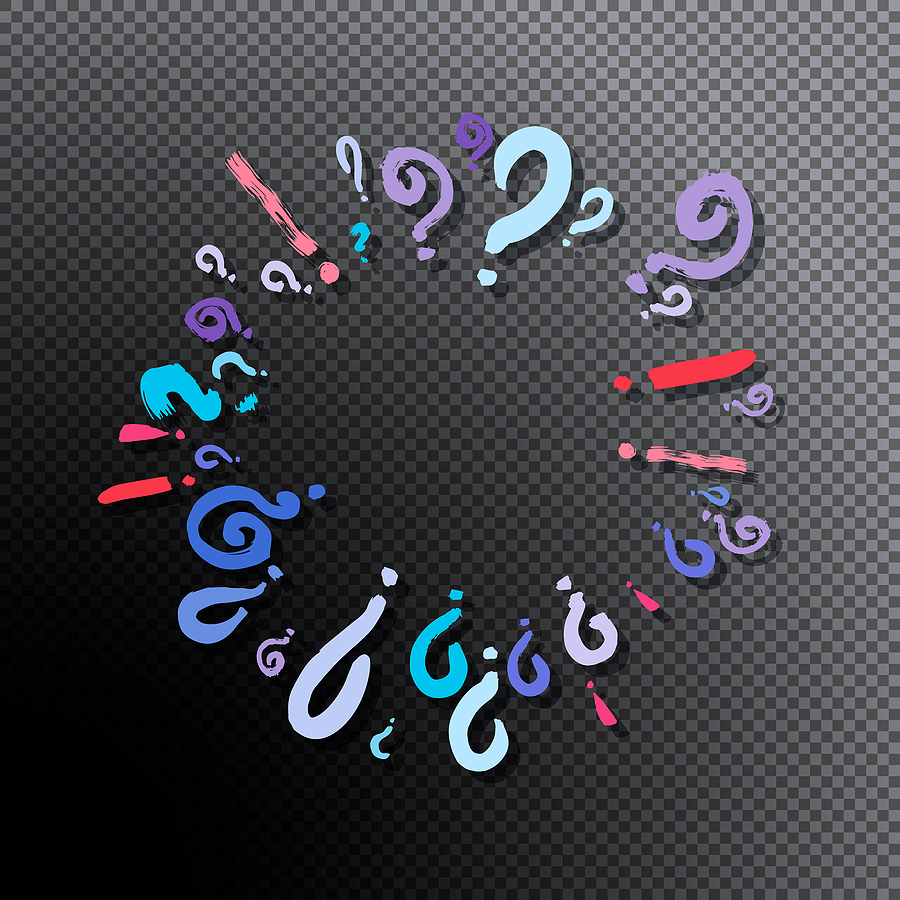In his memoir, Education of a Wandering Man, Louis L’Amour repeats a charming story about two great actresses that reveals the power of punctuation:
Sarah Bernhardt . . . finally got a chance to see [Eleanora] Duse on the stage and, overcome with the greatness of the performance, wrote a very quick note to send backstage. It said: “Sarah Bernhardt says Eleanora Duse is a great actress.” Busy changing costume for the next act, Eleanora Duse had no time to compose a reply, so she picked up a pen and added two commas to the note and returned it. Now it read: “Sarah Bernhardt, says Eleanora Duse, is a great actress.”
Attention to detail is a habit every writer must acquire, for even the smallest element of our writing (such as punctuation) can drastically change—for better or worse—its clarity and quality. So, I thought I’d share just a few of the most common punctuation mistakes I see in work that writers submit to me as a literary agent:
- Misplaced commas. Standards have changed over the years, and readers tend to like fewer commas these days. But fewer vs. more is seldom the issue; misplacement is. So, for example, I see many sentences, such as “The biggest things that drive me crazy, are misplaced commas.” That sentence shows that it’s possible to be right and wrong at the same time.
- Overused exclamation points. I sometimes tell conferees and clients that they get one exclamation point in a book-length manuscript! More than that can be annoying! So, use your one exclamation point wisely!
- Using emoticons. Unless you’re writing a text or a casual email, just say no to emoticons. 🤪 See how silly that looks?
- En dashes and em dashes. A hyphen is an “en dash.” An “em dash,” such as I used in the paragraph above, is longer and is most often used to set off a phrase (as I did) or in dialogue to indicate an interruption. En dashes and em dashes are not interchangeable.
- Wayward question marks. I often see a sentence such as the following:
I asked her, “Where do you think you are going.”
I ask you, where is the question mark? Sure, the writer may have intended the sentence to sound like an exclamation, but if that’s the case, I didn’t ask her, I told her. Get my drift.
- It’s and its. This comes up again and again; but we’re writers, right? It’s simple to keep these two straight if you always read or hear “it’s” as “it is.” It’s never possessive; its is.
Now, I know there will be one or two smart alecks who point out a punctuation mistake in this post about punctuation. Go ahead, have at it!



 No Need to Be Insulting
No Need to Be Insulting
“Eats, Shoots and Leaves” by Lynn Truss is my absolute favorite book on this! I’m a former English teacher (high school – yes, I survived) and magazine editor. Those misplaced commas and extra apostrophes make me crazy. I tend to edit everything I see (I’ve even found misspellings in the Bible).
“The biggest things that drive me crazy, are misplaced commas.”
Personally, I have a pet peeve about misused plural and singular.
“The biggest thing that drives me crazy is misplaced commas.”
I hate that misplaced comma’s,
they drive me up a tree!
I want to shout, “Yo, momma!”
and behave most violently.
Might I be —- like Hamlet
in fell thought of judgement drear?
or not, words eggs in omelette
like me, to one day disappear?
Methinks the comma is, like sheep,
lost upon it’s way
in, striding ‘cross the deep
a reprobate, at play
with my perplexed writing, brain
to never ken this silly game.
Bravo, Andrew! Very creative.
Thanks, Roberta!
Bob, I have students who, without fail, fail to use any punctuation other than periods. Sometimes, they even leave those out. Other students put commas between subjects and verbs and anywhere their hearts desire. Augh!!!! Oops, I just used up my exclamation points for four books! (Make that five books.) Such is life.
The error that bothers me lately is people commenting on fb and using no punctuation sentence after sentence they drone on they need to go back and take an English course or borrow their kids English book 🙂
And, by the way, hyphens are not the same as en dashes. They are shorter. En dashes are used between verses when listing a range in a Bible quotation or in a series of numbers. Hyphens are used in compound words.
I came here to say the same thing.
Compare the following:
hyphen: –
en dash: –
em dash: —
You see they’re all a different length!
Interesting, it looks like this website has a problem with hyphens. It automatically changed my hyphen above to an en dash. (Which is not correct.)
I put together a jsfiddle page so you can see the difference:
https://jsfiddle.net/agjd7zm6/
OKAY, people. Mea culpa. Mea culpa. Mea big fat culpa.
Thanks so much, Bob! Hyphen, en dash, em dash, blah! I’ll try my best, I promise.
My instructor at University of Chicago said the only time you are allowed more than one end mark (e.g., !! or !?!) is when you are attacked while writing.
Yes, commas have changed over the years and that is a problem. Even pro-writing aid grammarly can’t agree.